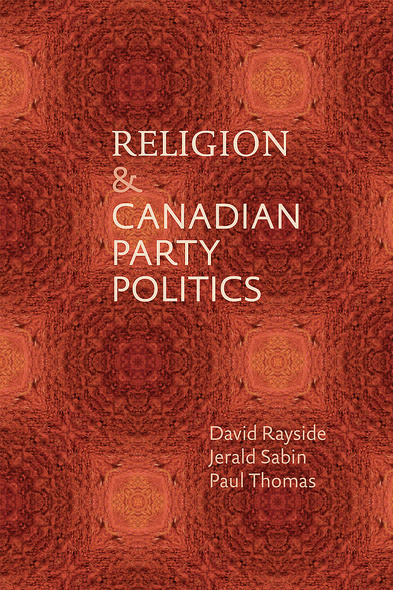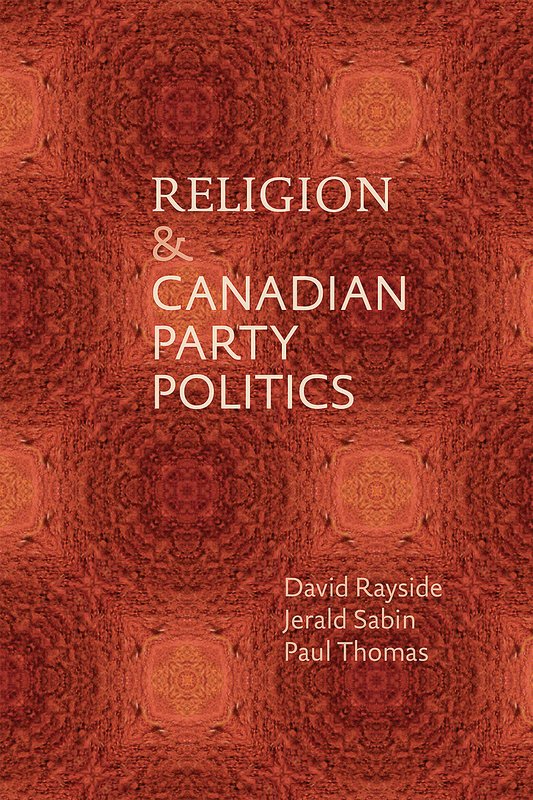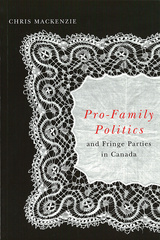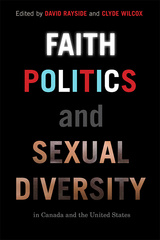
Religion is usually thought of as inconsequential to contemporary Canadian politics. Religion and Canadian Party Politics takes a hard look at just how much or how little influence faith continues to have in federal, provincial, and territorial political arenas.
Drawing on case studies from across the country, this book explores the three axes of religiously based contention that have been most influential in Canada. Historically, denominational distinctions between Catholics and Protestants shaped party oppositions across several regions. Since the 1960s, as religiosity experienced a steep decline, a newly politicized divide opened between religious conservatives and political reformers. Then since the 1990s, sporadic controversy has centred on the political and legal recognition of non-Christian religious minority rights. Although the extent of partisan engagement with each of these sources of contention has varied across time and region, this book shows that religion still matters in shaping party politics.
This detailed look at the play of religiously based conflict and accommodation in Canada fills a large gap and pulls us back from overly simplified comparisons with the United States. More broadly, this book also compares the role of faith in politics in Canada to that of other Western industrialized societies.
This book will appeal to scholars and students of political science and public policy, religious studies, sexuality studies, sociology, education studies, and Canadian political history.
This is a solid monograph, based on an impressive array of sources ... It is also very readable, and mercifully free of jargon, making it accessible for undergraduates and interested lay readers outside academia. It is recommended to anybody seeking to understand the role of religion in the recent Canadian political landscape. It is also an important contribution to the ongoing debate over 'secularization' in Canadian society.
With declining rates of religious participation and an increasingly diverse population, it is tempting to conclude that religion is a waning force in Canadian politics. Through richly described and carefully selected case studies, this book makes a compelling case for refocusing our attention on the ways in which religion structures political affiliation and debate in contemporary Canada.
The formal separation of church and state is an American idea. Rayside, Sabin, and Thomas insightfully and deftly portray the Canadian religious/political relationship in a seriously valuable and important study.
Preface
Introduction: Faith and Party Politics in Canada
Part 1: Federal Politics
1 Conservative Faith and Federal Parties
2 Abortion Politics and Federal Parties
Part 2: Persistent Denominationalism in Provincial Politics
3 Religion in Atlantic Provincial Politics: The Special Cases of Newfoundland and Labrador and New Brunswick
4 Ontario’s Progressive Conservatives and Tenacious Denominational Politics, 1943–85
Part 3: Religious Conservatism and the Partisan Right
5 Sexual Diversity and the Mobilization of Faith Communities in Ontario, 1986–2015
6 The Declining Influence of Conservative Faith in Alberta since 1971
7 Schooling, Sexuality, and Religious Conservatism in British Columbia Politics
Part 4: Canada’s Most Distinctive Regions
8 Conflicted Secularism in Francophone Quebec Party Politics
9 Evangelical Christianity and Northern Territorial Politics
Conclusion: Canadian Diversity in Comparative Context
Notes; Index








